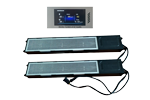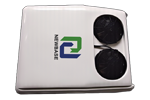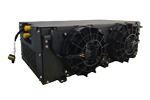Trends in the Development of New Energy Electric Buses
In recent years, the development of new energy electric buses has gained significant momentum, driven by a combination of factors that encompass national policy support, rising environmental awareness, and technological advancements. This trend is poised to reshape the transportation landscape and contribute to a greener future.
Policy Support and Incentives
Governments worldwide, including China, have been actively promoting the adoption of new energy vehicles, particularly in the public transport sector. For instance, China's "New Energy Vehicle Industrial Development Plan (2021-2035)" outlines ambitious targets for the electrification of public vehicles, aiming for a comprehensive electrification of public transportation by 2035. Policies such as the gradual removal of purchase restrictions on new energy vehicles and the implementation of supportive measures for their operation have further accelerated the adoption of electric buses.
Environmental Awareness and Demand Growth
With the growing concern about climate change and air pollution, consumers and institutions are increasingly opting for eco-friendly transportation options. Electric buses, with their zero-emission capabilities, low noise levels, and high energy efficiency, are seen as a viable solution to reduce the environmental footprint of public transportation. This has led to a surge in demand for electric buses, particularly in urban areas where air quality is a major concern.
Technological Advancements
Advancements in battery technology have played a crucial role in the development of new energy electric buses. Modern batteries offer longer driving ranges, higher energy density, and improved durability, making electric buses more practical and reliable for daily operations. Additionally, the development of efficient air conditioning systems and weight-saving designs has further enhanced the performance and cost-effectiveness of these vehicles.
Market Expansion and Globalization
The electric bus market is expanding rapidly, with manufacturers investing heavily in research and development to meet the growing demand. Companies are also exploring opportunities for international expansion, with the goal of selling their electric buses globally. This trend is expected to continue, fueled by the increasing recognition of the environmental benefits of electric transportation and the supportive policies of various governments.
Integration with Emerging Technologies
The integration of emerging technologies such as 5G and Internet of Things (IoT) is expected to further enhance the capabilities of electric buses. For instance, 5G-enabled communication systems can enable real-time monitoring and control of bus operations, improving safety and efficiency. Similarly, IoT technologies can be used to optimize energy consumption, route planning, and maintenance schedules, further reducing operational costs and enhancing passenger comfort.
Conclusion
In conclusion, the development of new energy electric buses is on an upward trajectory, driven by a combination of policy support, environmental awareness, technological advancements, and market expansion. As these vehicles become more practical, reliable, and cost-effective, they are poised to revolutionize the public transportation sector and contribute to a greener, more sustainable future.









.png)






